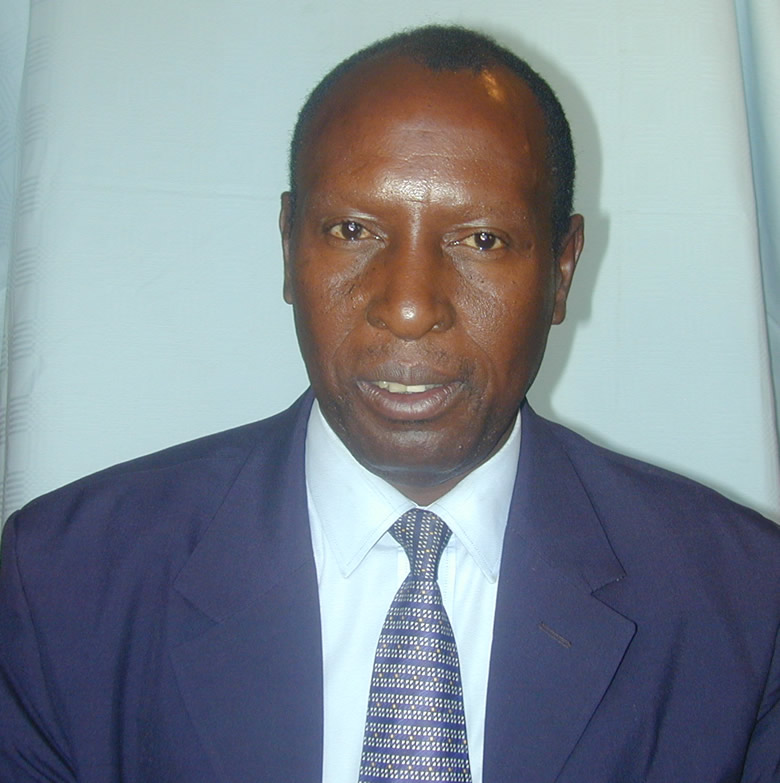Debts hinder Africa’s economic growth

Ngonidzashe Chiutsi
AFRICA needs to deal with its foreign debt crisis that continues to undermine the continent’s economic growth, credit worthiness and sustainable development.
Many African countries especially in the Common Market for Eastern and Southern Africa (Comesa) such as Sudan, Zimbabwe, Malawi and Zambia are sinking in foreign debt which runs to over $100 billion.
According to a latest International Monetary Fund (IMF) report, Sudan’s external debt stood at approximately $45 billion in 2013 from $39.5 billion in 2010.
Zimbabwe is also grappling to clear its foreign debt estimated to be hovering around $10 billion owed to a number of countries and international financial institutions.
Economist Christopher Takunda Mugaga said the major reason why Africa’s economies have remained stunted was due to debt owed to European countries and multilateral institutions such as the IMF, World Bank and G8.
“One of the major traps of African development is debt and normally it manifests in aid. Once the aid is extended to Africa, it’ll continue pushing Africa’s economy downwards because they’ve to commit to paying the debt and this will compromise the sustainable development and also compromise the credit rating of nations, once a country fails to pay those debts,” said Mugaga.
He said the debt trap that African countries were in was denting efforts to eradicate poverty on the continent, as most of the money was used to service debt.
“Africa’s debt crisis will continue compromising development in terms of Gross Domestic Product (GDP) growth and in terms of eradicating poverty out of Africa. We see some lines of credit being extended to Africa on certain conditions and some of the conditions are unfriendly,” said the economist.
Mugaga said the crisis was more pronounced in countries whose national budgets depend on aid.
“The debt crisis is worse in countries such as Malawi whose economies are debt dependent or debt driven nations. The major reason why Africa’s growth has been stunted in terms of GDP is correlated to debt than to politics,” said Mugaga.
DP Foundation Chief Executive Mildred Sandi, whose organisation fights for the poor and marginalised, said delays in ending the debt burden on African countries would continue to cost the poor.
“There’s need for us to see how other countries in the world like Brazil are managing to clear their debts,” she said.
In July, US President Barack Obama said the Group of 7 nations (G7) was open to cancelling debts of African countries that would have been contracted and squandered by their leaders.
In Zimbabwe there have been proposals to put the country in the Highly Indebted Poor Countries (HIPC) category.
However, the International Monetary Fund (IMF) said Zimbabwe was not poor enough to deserve financial bailout under the HIPC facility.
Domenico Fanizza, the lender’s representative to Zimbabwe, said the country had “a lot of potential” and did not qualify for “destitute bailout money”.
“Zimbabwe owes IMF $142 million and cannot benefit from the institution’s financial support because of these arrears. The country does not qualify for debt relief under HIPC arrangement,” Fanizza said.
Deputy Minister of Finance and Economic Development Dr Samuel Undenge said the arrears were limiting the country’s ability to access new financing critical for economic revival thus stifling sustainable economic growth.
“Zimbabwe is operating under a difficult environment characterised by sanctions, and an external debt overhang which is estimated to be $10 billion,” he said recently.
“Zimbabwe’s arrears are stifling sustainable economic growth and also limiting the country’s ability to access new financing, which is critical to the achievement of inclusive growth, poverty reduction and job creation.”
He said the country was failing to access credit from international financial institutions because of the soaring debt.
“Because of arrears, the government is blocked from accessing credit at concessional rates. Credit is mainly available as short-term financing and at high interest rates,” said Dr Undenge.
Mugaga said debt relief was not the solution to the debt crisis.
“Debt relief isn’t a sustainable or permanent way of dealing with the crisis because the structure that promotes debt accumulation remains intact. It’ll be like dealing with the effect instead of the cause. The issue is on how we manage our finances. There’s need to stop corruption and also look at how we structure our budgets. You’ll realise what we have in the national budgets is hardly implemented,” said Mugaga.
Kenya based economic analyst, Vincent Okoto, also told this publication that although debt campaigners succeeded in pushing the multilateral institution to abolish debts owed by some developing countries, latest figures show total external debts are once again on the increase.
Reports say up to 30 low-income sub-Saharan African countries had their debts reduced under the IMF and World Bank’s HIPC initiative, which was later supplemented by the Multilateral Debt Relief Initiative (MDRI), but Okoto said that some of the countries are being trapped again in debts.
“Approximately $100 billion of debt was wiped out, easing countries’ debt burdens but some countries are already over-borrowing, especially in countries expecting new revenues from resource discoveries,” said Okoto.
He said in Ethiopia, Tanzania, Burkina Faso, Ghana, Uganda, Mozambique, Senegal, Niger, Malawi, Benin and Sao Tome and Principe, debt levels are creeping back up.
“What happens if these countries continue to borrow and grow at current rates is that their debt indicators could be back to pre-relief levels within a short period,” said the economist.
Okoto also expressed concern that most of the money borrowed was not used to grow the economy but for consumption purposes.











Comments